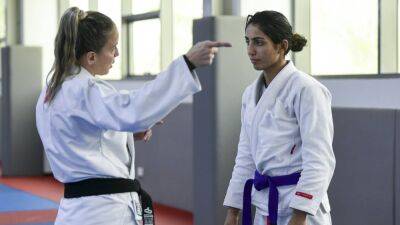Time has come for World Athletics to budge from its outmoded policy on false starts
This is a column by Morgan Campbell, who writes opinion for CBC Sports. For more information about CBC's Opinion section, please see the FAQ.
What can you do in one one-thousandth of a second?
Voluntarily, I mean.
Hang up on a robocall?
Block a forex/crypto grifter's follow request on Instagram?
Hit "don't recommend channel" when YouTube's algorithm serves up a Joe Rogan/Jordan Peterson collaboration?
Many of us could make many of those decisions in a flash, but not in .001 seconds. In the real world, thousandths of a second barely exist. Anything we can measure that closely is a matter of reflex or luck.
But in the alternate dimension known as the World Athletics Championships, one one-thousandth of a second can determine the difference between a great start and an illegal one; a keen competitor and a cheater.
WATCH | Making the case to abolish the false start rule in track and field:
Witness Devon Allen, the future Philadelphia Eagles wide receiver and the third-fastest 110-metre hurdler in history, looking to win a medal in Eugene, Ore., where he competed as a collegian at the University of Oregon. He registered a reaction time of .101 seconds in his semifinal on Sunday. A fast, but legal, result, according to the World Athletics rulebook, in line with the governing body's ideas about the fastest possible reaction to a starter's pistol.
In the final, Allen reacted in .099 seconds — a negligible difference everywhere but in World Athletics' guidelines, which state that any figure faster than .10 seconds is a false start, and the result of an athlete anticipating the gun. Common sense says that Allen could not possibly have decided to react one or two thousandths of a second faster in the final, but World Athletics'





